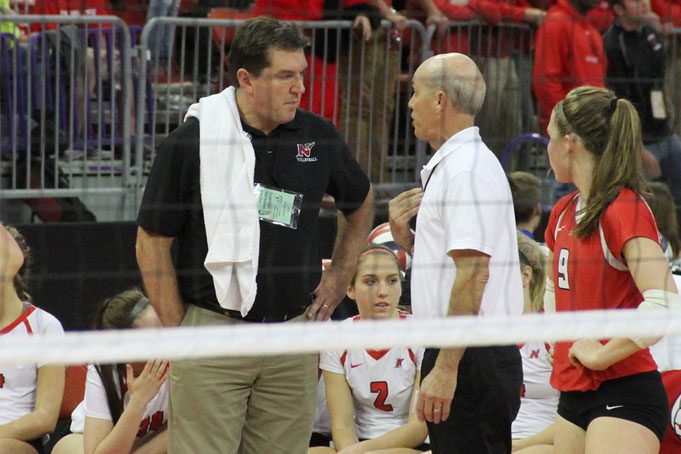When situations explode on the field or court, it’s up to sports officials to restore the peace and manage conflict. In managing conflict, showing a little empathy, demonstrating good listening skills and providing people with options rather than threats go a long way.
The work of conflict management should begin well before any crisis has erupted — for sports officials it starts when first arriving and meeting participants. Not only does appearance matter, but how officials first communicate with people sets an important stage. Greet people with a smile. It’s the universal greeting and it disarms people. Introduce yourself and let coaches and players know you understand what they are saying.
That’s a basic starting point for “Verbal Defense and Influence/ Conflict Management for Athletic Officials,” a management approach used to defuse conflict that Pete Jaskulski, developed from his years of experience in law enforcement and officiating.
Five Maxims
His conflict management program focuses on five maxims, which have an underlying theme of treating people with dignity by showing them respect.
- Listen to people with all of your senses. There are things happening on the field, on the court and on the benches that will give the official a sense of how the game is progressing. Officials should be listening and not just hearing what is being said.
- Ask, don’t tell. All people, including coaches and players, want to be asked rather than being told what to do. Instead of telling a batter to get back into the batter’s box, an umpire can ask the batter to return to the box. That is a sign of respect and generates less resistance.
- Explain why. Not every call needs to or should be explained, but when appropriate, give explanations. The first great American question is “why?” Explanations answer that question.
- Offer options, not threats. By offering options you give the players and coaches the choice of which way to go. The options start with the positive choices and then outline the negative choices — but it’s helpful to review the positive choice at the end.
- Give a second chance. All sports are emotional. We have all done things that we later regretted. When it’s appropriate, let the players and coaches think about the options you give them. Good officials can talk players and coaches out of an ejection.
Dignity and Respect
The first step in treating others with dignity and respect — and receiving the same in return — starts the instant an official arrives on the field or court. Appearance affects how people perceive you and the respect people will give an official for the job that official is about to undertake.
In fact, the benefits go beyond perception. The benefits flow to the official in terms of his or her physiological response to the way he or she looks and comes across.
Officials should be conscious of their posture and how they stand. As you pull up your height, stress goes down and testosterone goes up. When a coach comes up to you, ‘stack up the blocks.’ Breathe in. Breathe out. That clears the mind and gets you more prepared for the action.
The first introductions in a contest are critical. They establish the pattern. Coaches are looking at you and sizing you up. The universal greeting is to introduce yourself to coaches and players, shake hands, smile and say a few words, but a lot of officials can struggle with that. Communication is a skill. Most officials practice going over the ground rules, but not the communication side of officiating.
Focus on basic human nature — and answering the four questions that people tend to ask.
First, people want to know why something happened.
Second, they want to know who you are.
Third, they’ll ask where you get your authority.
Finally, people want to know, “What’s in it for me?”
Applied to officiating circles, answering those questions builds a foundation for preparing to handle tough situations and defuse conflict in fast-paced, excitable environments. “What we do all comes back to answering those four questions,” he said. “Everybody wants those answers.”
What's Your Call? Leave a Comment:
Note: This article is archival in nature. Rules, interpretations, mechanics, philosophies and other information may or may not be correct for the current year.
This article is the copyright of ©Referee Enterprises, Inc., and may not be republished in whole or in part online, in print or in any capacity without expressed written permission from Referee. The article is made available for educational use by individuals.


















